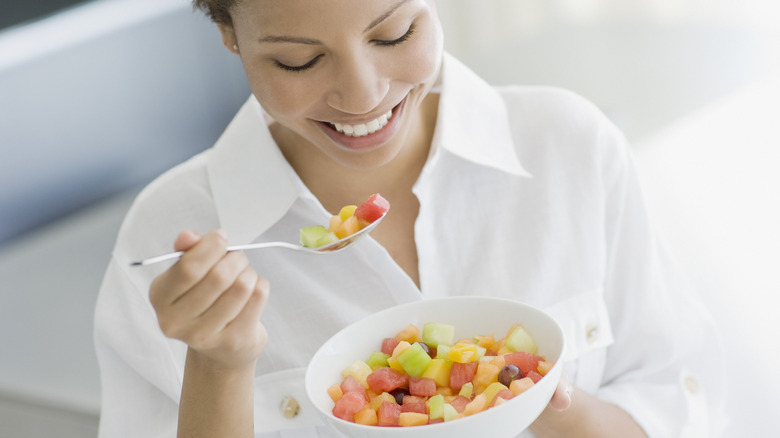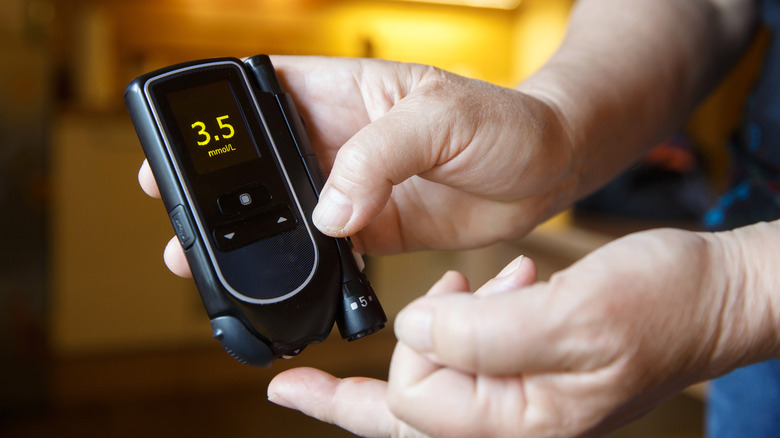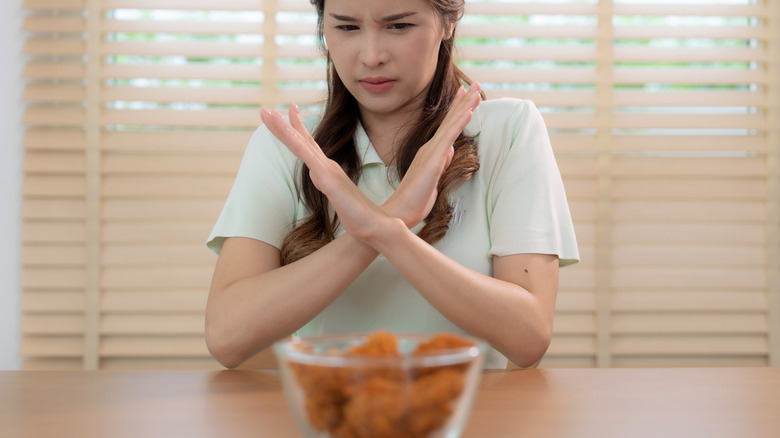
You’ve been yearning for a bowl of mixed fruit for the past week or so. The moment the sweet nectar touches your taste buds, it’s hard not to sigh with delight. Your newfound craving for blueberries and cotton candy grapes has you wondering if your body is signaling that something is missing.
One might easily associate a fruit craving with a nutritional deficiency, but science doesn’t support this link, as noted by Healthline – largely due to the nature of fruit cravings themselves. For instance, research in the International Journal of Eating Disorders found that women are nearly twice as likely as men to experience food cravings. There was a significant connection between food cravings and mood. Thus, it’s more likely that your cravings signify a shift in hormones, dietary restrictions, or low blood sugar.
Understanding your inner mind and cravings can be achieved by exploring the various triggers that make you crave different fruits. Interestingly, resisting your craving might make it disappear. It’s all about science, after all.
Hormonal changes lead to craving fruit

To understand the reasons behind fruit cravings, one should first consider the calendar. Hormonal changes around a menstrual period could be a key factor. A 2016 study in The FASEB Journal indicated that specific food cravings during the menstrual cycle are linked to steroid fluctuations within the body. The findings suggested that increased levels of progesterone or leptin might lead to heightened cravings for sweet foods and juices, making you unable to resist your favorite strawberry smoothie.
Healthline emphasizes that it’s not just about steroids, though. A period can significantly impact an individual’s emotions, causing mood swings from crying to frustration. Sweet foods can provide a serotonin boost in the brain, leading you to reach for sweet apples and grapes during emotional lows.
Hormonal fluctuations during the menstrual cycle can disrupt appetite, but this can also occur during pregnancy. Research in Frontiers in Psychology found that up to 90% of pregnant individuals in the United States experience cravings. Fruit and fruit juice were high on the list, at 18.8%. Sweet foods were the top craving, making fruit a great alternative. Hormonal-related cravings aren’t harmful, but it’s crucial to consume everything, including fruit, in moderation.
Fruit cravings might hint at low blood sugar

Have you ever missed a meal and then craved something sweet? It could be a chocolate bar or perhaps an apple that has you salivating. Fruit cravings that occur occasionally after not eating for some time could indicate low blood sugar.
Blood sugar, or blood glucose, is the sugar used for energy in your bloodstream (via Medline Plus). Fluctuations in blood sugar levels prompt the pancreas to produce insulin to maintain balance. Individuals with diabetes face issues where insulin production is misaligned, resulting in higher blood sugar levels than normal. Low blood sugar can be a complication for those managing diabetes with insulin. However, some people experience abnormally low glucose levels without having diabetes for various reasons. A study in Physiology & Behavior found that individuals with low blood sugar can have intense cravings for carbohydrate-rich foods, including fruits. Therefore, you might want to check your blood sugar levels.
Craving sweets isn’t the only sign of fluctuating blood sugar levels. You might also feel shaky or extremely hungry. Some individuals with hypoglycemia even begin to sweat. Consuming a pear or orange can help boost your sugar levels and alleviate symptoms. According to NHS Inform, low blood sugar can lead to an emergency, so it’s crucial to address it.
Food restriction causes you to crave fruit

According to Scientific American, eating is often driven by pleasure. While it’s also essential to heed hunger cues, cravings are largely about the enjoyment of eating. That’s why, when you can’t have a particular food, you tend to crave it. A 2020 study in Current Nutrition Reports indicated that cravings for foods like fruit can increase in the short term when they are restricted from your diet. For instance, those on a keto diet might drastically limit or eliminate fruit, leading to cravings. This craving might also arise when you limit available fruits, such as strawberries being out of season, making you crave them since they aren’t readily available.
The study also revealed that long-term food restriction could reduce fruit cravings. Since food cravings are a learned behavior, the longer you keep it out of your diet, the less you’ll crave it. Staying firm and not indulging can curb the craving. Remember, fruits are an important source of vitamins and fiber, so consuming them in moderation is beneficial.
Craving fruits might seem like your body is communicating something to you. At times, it might be signaling low blood sugar. However, fruit cravings can also be attributed to hormonal changes or a natural desire for something you’re restricting.




